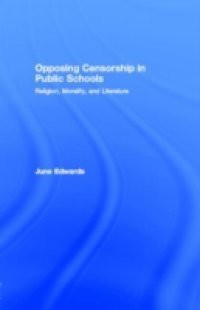In the past several years, hundreds of challenges a year to books used in public schools have been reported across the nation. Most of these have come from the Religious Right. This book confronts the attacks on public education and commonly used literature books by challenging the religious assumptions, the biblical interpretations, and the intimidation tactics of the Religious Right. Part I counters the claims of these censors by presenting opposing views on democracy, secular humanism, religion, the Bible, morality, and the purposes of literature. In Part II, six books frequently taught in high school classes are analyzed. Edwards shows why they have been challenged by the Religious Right, and presents a case for their moral and religious virtues as well as their literary worth. The book differs from other anti-censorship works because it deals primarily and directly with the religious and moral aspects that educators often tend to avoid. This book offers teachers and school administrators scholarly conterarguments that can help confront with literature challenges from the Religious Right.

